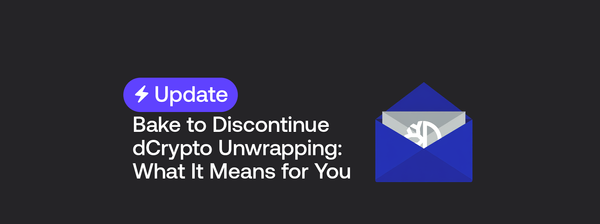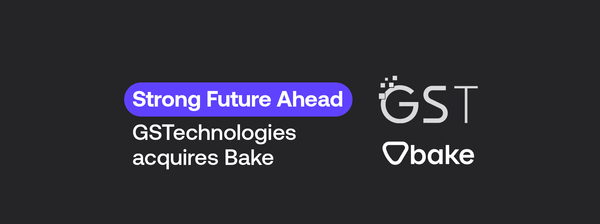Chainlink (LINK): A Decentralized Oracle Network
Blockchains are not designed to interact with external data sources or systems directly.
Any data required from the outside world by a smart contract must be brought on-chain in a secure and reliable manner to ensure the contract's proper execution.
The way to do this is through Blockchain Oracles — third-party services that fetch, verify, and relay external data to blockchain networks.
But how can you trust the data the Blockchain Oracle is submitting to the smart contract is accurate or uncompromised?
This is where Chainlink’s innovative solutions come into play.
Chainlink’s Decentralized Solution
Chainlink addresses the oracle problem by using a decentralized network of nodes, known as oracles, to provide real-world data to smart contracts on the blockchain.
Unlike centralized oracles, which introduce a single point of failure and potential for manipulation, Chainlink's decentralized oracles collectively retrieve, verify, and deliver data, ensuring the accuracy and trustworthiness of the information.
Each oracle node in the Chainlink network is economically incentivized to provide accurate data through the native LINK token. Nodes are required to stake LINK as collateral, which can be forfeited if they provide faulty data, aligning their incentives with the overall security and reliability of the network.
Key Features of Chainlink
High-Quality Data Feeds
Chainlink offers multiple data feeds, such as price feeds for cryptocurrencies, which aggregate data from multiple sources to ensure accuracy and reliability. These feeds are used extensively in decentralized finance (DeFi) applications to secure billions of dollars in value. By sourcing data from numerous independent nodes, Chainlink eliminates single points of failure and ensures data integrity.
Verifiable Randomness
Chainlink's Verifiable Random Function (VRF) provides a reliable source of randomness for blockchain applications. VRF generates random numbers that are provably fair and resistant to tampering, which is crucial for applications such as gaming, lottery systems, and NFT minting. By using VRF, developers can ensure that their applications produce unpredictable and unbiased results.
Proof of Reserve
This feature allows for the verification of off-chain reserves backing on-chain assets. Proof of Reserve enhances transparency and trust in tokenized assets and wrapped tokens by enabling automated and regular verification of reserve balances. This is particularly important for stablecoins, wrapped tokens, and other assets that derive their value from off-chain holdings.
Cross-Chain Interoperability
Chainlink facilitates the transfer of data and value between different blockchain networks through its Cross-Chain Interoperability Protocol (CCIP). This enables the creation of more complex and interconnected decentralized applications (dApps) that can operate across multiple blockchains.
Use Cases of Chainlink
- Decentralized Finance (DeFi): Chainlink is the backbone of many DeFi protocols, providing the price feeds that enable functionalities such as lending, borrowing, and derivatives trading. Major DeFi platforms such as Aave, Synthetix, and Compound all rely on Chainlink for accurate market data.
- Insurance: By supplying reliable external data, Chainlink enables insurance contracts that automatically trigger payouts based on predefined conditions, reducing the need for manual claims processing.
- Gaming and NFTs: Chainlink's VRF ensures fairness in gaming and the distribution of NFTs, creating trust and transparency in these ecosystems.
- Supply Chain Management: Chainlink allows for real-time tracking and verification of goods as they move through the supply chain. This helps prevent fraud, ensures product authenticity, and improves overall efficiency.
- Healthcare: By providing access to verified and tamper-proof data, Chainlink can enhance the security and reliability of health records and data sharing between healthcare providers. This ensures patient data integrity and improves the efficiency of healthcare services.
- Real Estate: Chainlink oracles can automate the verification of property details, ownership records, and transaction data, facilitating smoother and more secure real estate transactions. This reduces the risk of fraud and increases the transparency of the buying and selling process.
How to Invest in Chainlink (LINK)
By providing secure, reliable, and decentralized oracles, Chainlink enhances the functionality of existing blockchain applications and is paving the way for innovative solutions across various industries.
As the ecosystem continues to grow, Chainlink's role as a foundational technology in the decentralized web is set to expand, bringing greater levels of automation, transparency, and trust to the digital world.
You can invest in Chainlink directly by swapping any cryptocurrency for LINK through the Bake app.
If you're looking for more projects like Chainlink, the Bake New World Oracles Bundle allows you to invest in a share of LINK, PYTH, BAND, ORAI, TRB, UMA, API3, and DIA in just a couple of taps.
DISCLAIMER: Please note that the information on this blog and in any articles posted on this blog is for general information only and should not be relied upon as financial advice. Cake Pte. Ltd., Cake DeFi, UAB, and its affiliates (the “Cake Group”) are not licensed financial advisers. You may wish to approach your own independent financial advisor before making any decision to buy, sell or hold any product and/or digital assets mentioned in this blog.
Any views, opinions, references, assertions of fact and/or other statements are not necessarily the views held by the Cake Group. The Cake Group disclaims any liability whatsoever that may arise out of or in connection with such statements. Always do your own research before investing in any financial assets and consult a qualified financial advisor if necessary.





